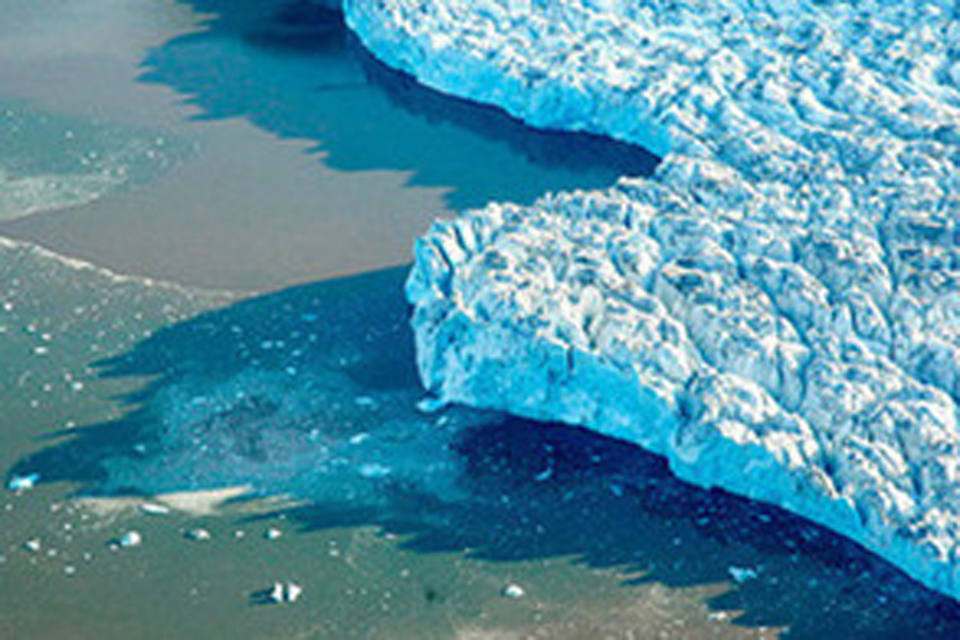Dhaka marks publication of the UN IPCC report on climate change
British High Commissioner Robert Gibson's speech following publication of the Intergovernmental Panel on Climate Change's latest assessment

Honourable Minister for Environment and Forests Dr Hasan Mahmud, ladies and gentlemen, I welcome you all to the British High Commission this evening to mark the publication of a scientific report that confirms climate change is happening, due to human activity; a report that clearly shows ice is melting and sea levels rising faster than expected; a report that notes the increased likelihood of life threatening, extreme weather events. And we all know the devastating effect such events can have in Bangladesh. We cannot forget Cyclones Sidr and Aila in 2007 and 2009.
So, the first volume of the Fifth Assessment Report on science of climate change, by the Intergovernmental Panel on Climate Change (IPCC), is an extremely important report. Its authors consulted over 259 experts from 39 countries. Countless research papers and scientific data were analysed. The UK government considers it the most comprehensive and authoritative report to date, and one which shows the strongest scientific consensus on what climate change will mean for us all.
I am glad that the UK played a significant role in publishing the report. Scientists from the UK’s Met Office, our national weather service, have contributed their expertise to the IPCC as lead authors alongside other national experts. The Met Office has also fed into the process observational data and climate modelling, drawing on the UK’s national climate capability and partnerships with UK research establishments. Similar contributions have come from all other leading experts, including Bangladesh’s Dr Saleemul Huq. Their analysis will continue with two reports next year focussing on adaptation, vulnerability and mitigation.
The result of this latest report is a full and undeniable picture of climate change. As difficult as the headlines may be to accept, the science is clear for all. The thermometers don’t lie: global warming is unequivocal. And the report has strengthened the argument that climate change is manmade. Global temperatures have risen by 0.9°C since 1901. Global sea levels have risen 0.2m since 1901. The area covered by arctic sea ice cover in the summer has reduced by about 40% since 1979. The Greenland and Antarctic ice sheets are losing mass, as are the majority of glaciers worldwide. There are increased weather extremes and in the coming decades the likelihood of increased risks from extreme events.
The latest evidence suggests that without urgent action to reduce greenhouse gas emissions, we will likely see at least a 2°C and potentially as much as a 5°C rise in global temperatures by the end of this century. There is no surprise then that the report concludes that to have just a two-thirds chance of meeting the UN’s 2°C target, we need to limit future greenhouse emissions.
What does that mean for those of us gathered here? For us Brits, we are typecast as having a preoccupation about discussing the weather at every opportunity. And this morning it rained so persistently that it felt more like a damp, autumnal day where I grew up in south Wales. But such changes are becoming the reality. The report tells us we should expect more. The weather in the UK is already hotter; four out of the five hottest years in the last 330 years since temperature records began occurred in the last 10 years. That is an undisputable fact. In Bangladesh the sea level is rising. That’s undeniable. It is affecting thousands now. It will affect millions in the future. And we all know the catastrophic effect of extreme weather events in this country.
Another example, particularly relevant to both the UK and Bangladesh, is the increase in acidity in the oceans. Due to human CO2 emissions, ocean acidification is getting worse, with major consequences likely for key ocean ecosystems.
This latest assessment of the scientific evidence re-emphasises the need for governments, businesses and individuals to tackle climate change. It provides a strengthened case for international leaders to act now to reduce domestic carbon emissions and to work towards securing an ambitious, legally binding global agreement in 2015. Dangerous climate change is happening and, unless we act, it will continue to worsen in coming decades. The longer we delay effective action, the higher the risks and greater the costs.
The UK government is already providing £3.87 billion through our International Climate Fund to support developing countries, to demonstrate low carbon development, protect forests and to help the poorest countries adapt to the impacts of climate change.
We can’t be complacent. We have to listen to the science and plan for tomorrow.
That is why I am delighted to see so many people here this evening and working together to inform, educate and collectively reduce the impact of climate change. It is vital that every one of us plays their part. We must persuade others to do the same, not just in the UK and Bangladesh, but around the globe. I hope that our countries can continue to work together to make the case for urgent action and that our international negotiators can bring together others to reach an agreement that will help bring about a long-term solution.
Thank you.